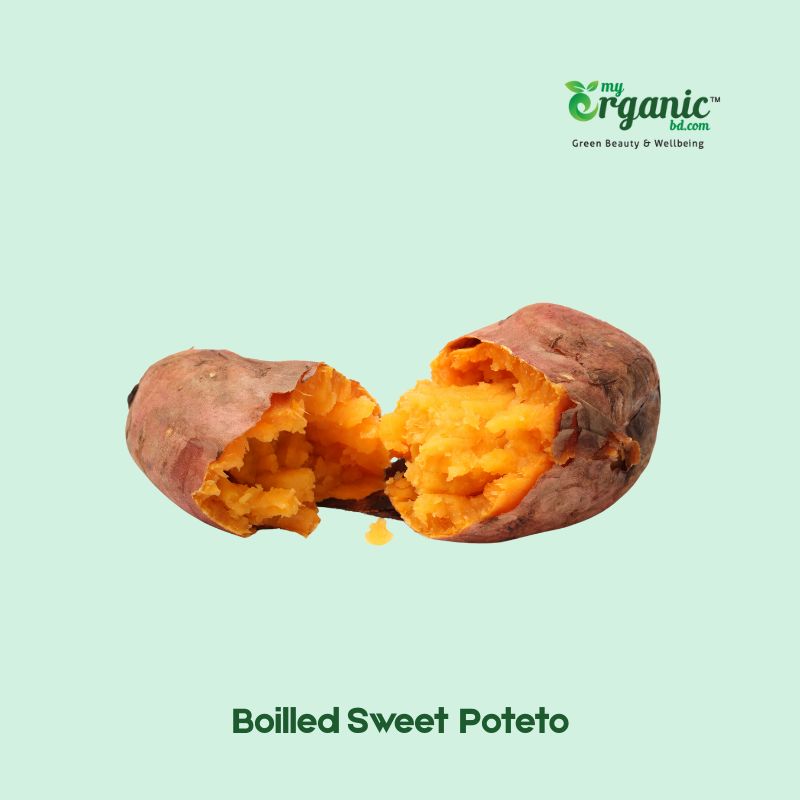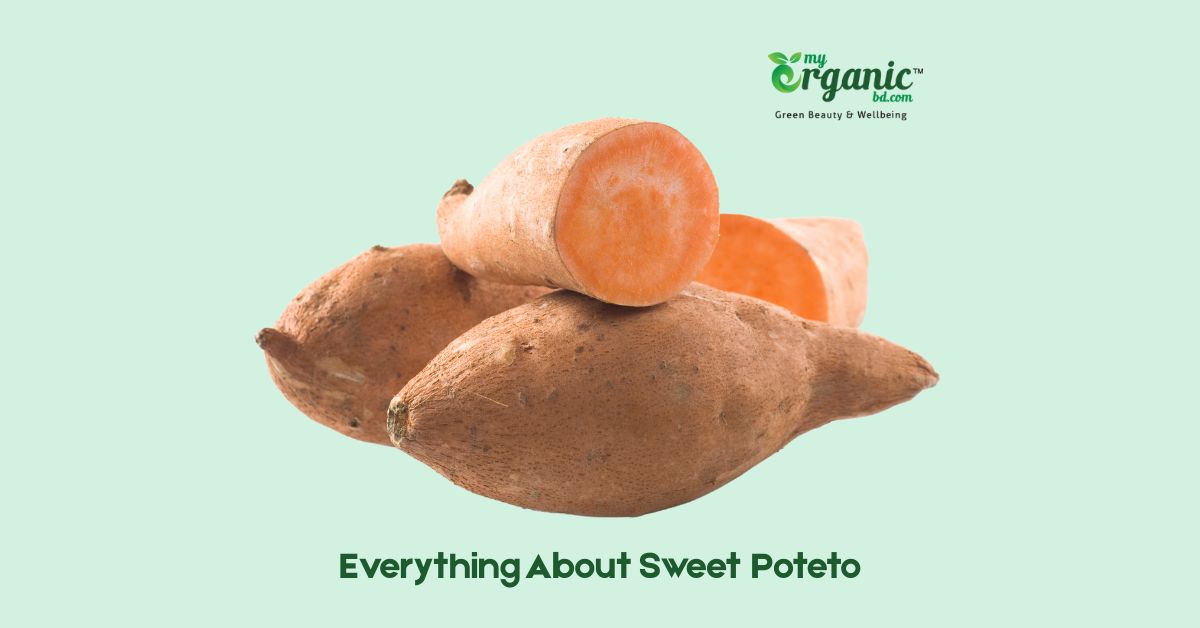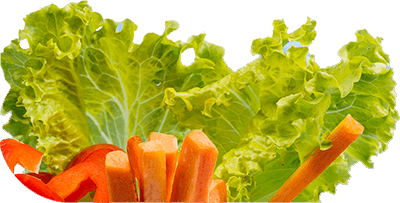Potatoes may be cool, but never cooler than sweet potatoes. We may call them sweet potatoes, but they are not even the same species. Sweet potatoes have a nutritional score of 184 according to CSPI, which is almost double than regular potatoes or even spinach! So what is the secret of this sweet thing?
It contains several essential vitamins in very high amounts. Considering its antioxidant properties and high fiber content, it is one of the best sources of carbohydrates. It comes with many health benefits, but for some reason, it’s quite underrated.
Let’s meet the writers. We are Team My Organic Body & Diet (My Organic BD), a group of wellness professionals, nutritionists, food microbiologists, and researchers. We aim to write insightful and easy-to-consume content about natural wellness. With our ten years of experience in this sector, we can easily help to soothe your ache of curiosity.
In this article, we will elaborate on the detailed benefits and considerations of sweet potatoes. This will include the nutritional properties and easy explanations of the wellness benefits. Only the scientific facts seem boring, we will also dive into the fascinating history of sweet potatoes and the fun ways to eat them. In between, there will be interesting facts that may make you wonder!
So, keep reading.
Is Sweet Potato a Superfood?
Undoubtedly, sweet potato fits well within our category of superfoods. According to our criteria, there are 3 types of superfoods.
- Food that contains an abundance of one or more essential nutrients.
- Food that contains a diverse number of essential and micronutrients.
- Superfoods that have a special ability towards wellness, heal, or prevent disease.
Just 200 grams of sweet potato contains double the amount of daily vitamin A requirement. It also has benefits for the gut, blood sugar, and more. So, sweet potato can be called a superfood for 2 categories: abundance of essential nutrients and special abilities. Note that no superfood is complete, and a range of nutritious foods is required for a healthy diet. Please read healthy diet – Benefits, Tips and mindful Nutrition to get a clear idea.
What is the history of Sweet Potato?
If we look at the book of history, the first mention of the sweet potato was found in an ancient note in Peru. It is from about 750 BC. Historical evidence suggests sweet potato farming may have started between 2500 BC to 1850 BC. Sweet potato is originated in South America. It was a regular diet of American aboriginal people before Christopher Columbus visited there. He brought sweet potatoes to Spain and planted them in his garden. Slowly, sweet potatoes spread to different parts of Europe. Colonialism played an important role to spread sweet potato. Today, this super vegetable may not be as popular as regular potato, but it is found in almost every part of the world. It is also moderately popular in some cultures.
What are the nutritional facts about Sweet Potato? (daily value)
Now we are on the core part of the article. First, let’s analyze all the nutrients of sweet potato. Every 200 grams of baked sweet potato with skin provides—
Calories: 180
Carbs: 41 g
Fat: 0.3 g
Fiber: 6.6 g
Protein: 4 g
Vitamin A: 213% of the Daily Value (DV)
Copper: 36% of the DV
Vitamin B5: 35% of the DV
Vitamin C: 44% of the DV
Manganese: 43% of the DV
Vitamin B6: 34% of the DV
Potassium: 20% of the DV
Niacin: 19% of the DV

Lets explain one by one.
Calorie
It is compact with high energy and keeps you feeling full for longer. It burns more slowly than regular potato or a source of starch. Eating a large amount for a long time may cause weight gain-related problems if you don’t burn the calorie.
Carbohydrate
Most of the energy of sweet potatoes comes from carbs. This super veggie contains glucose, fructose, sucrose, and maltose. It has over 30% of carbohydrates. It falls into the mid-range of the GI index. That means it may increase blood sugar moderately. However, the high fiber content may reduce the sugar spike a bit. Eating a lot of sweet potatoes is usually not good for people with type 2 diabetes.
In sweet potatoes, there are 3 types of starch. 80% of the starch is quickly absorbed, and 11% is absorbed slowly. The rest of the starch is resistant. Resistant starches play a great role in gut health.
Fibers
This vegetable contain a good amount of fiber. It has about 80 percent of insoluble fiber and 20 percent of soluble fiber. Soluble fiber intake reduces the feeling of hunger and reduces your cravings. This can be beneficial for those who are trying to reduce weight. On the other hand, insoluble fibers help the digestive system, are good for gut bacteria, and also have effects on reducing blood sugar.
Protein
Sweet potato is not a good source of protein, but it will surely add a little contribution to your daily protein intake.
Vitamin A
This veggie is easily one of the richest sources of vitamin A. It contains beta carotene, which converts into vitamin A. Vitamin A is essential for immunity, eyes, reproductive health, and many other functions of the body.
Copper
Sweet potato is a decent source of copper. Copper is vital for immune function, blood cells, heart, and bone health. It may also work like antioxidant.
Vitamin B5
200 grams of boiled sweet potato can fill up 34% of daily Vitamin B5 needs. It is an essential nutrient for the skin, hair, hormone function, and energy production.
Vitamin C
This is a good source of vitamin C. It works to prevent oxidative damage and protects from different diseases.
Manganese
Manganese from this potato may play a role in bone cell development, energy production, faster healing, and antioxidant defense.
Vitamin B6
It plays a vital role in the production of neurotransmitters like dopamine, serotonin, etc. It is important for energy metabolism and hormonal balance.
Potassium
Potassium balances the electrolytes of our body. It has a major role in the bone, heart, and muscle. Sweet potato has a small amount of potassium.
Vitamin B3
It is required for energy production, brain and cardiovascular function. These potatoes have a small amount of vitamin B3.

What are the proven health benefits of Sweet Potato?
Previously, on the nutritional facts, we mostly discussed the passive benefits of sweet potatoes. Most of the nutrients are always functioning in our body. So we usually do not understand the difference. In this part, we will discuss about active benefits, and special abilities of sweet potatoes.
Full of Antioxidants
Sweet potatoes are full of antioxidants such as beta-carotene, chlorogenic acid, anthocyanins, and vitamins C and E. A food with a diverse range of antioxidants makes it more beneficial for the body. Antioxidants fight with free radicals and protect our body from oxidative stress. Let me explain a bit. Free radicals are the molecules that are seeking electrons to be stable. They enter in our body through food or breathing, and our body also produces some. The problem with them is they steal electrons from body cells. When the cell loses an electron, it tries to steal another electron from nearby cells. A chain reaction starts and millions of cells are damaged this way. This is one of the common reasons for premature aging, cardiovascular disease, and even cancer. Eating a good amount of antioxidants is always good for overall wellness. Sweet potato can be a rich source of some of the strongest antioxidants.
Cancer protection
Antioxidants may play roles in cancer prevention, but there is direct evidence of cancer-resisting ability of sweet potatoes. These potatoes contain anthocyanins, which a strong antioxidants. Different test tube studies suggest it may play a role to protect different types of cancer, like colon cancer, prostate cancer, breast cancer, etc. A study on rats shows that these potatoes reduce the rate of colon cancer in the rats. More studies on humans are needed for more concrete evidence. But for now, it is well-established that this super veggie have good possibilities for cancer prevention. How do you choose the best sweet potato full of antioxidants? Choose the potato that has a darker color inside. It can be purple, yellow, or any other color. But colorful ones have more antioxidants than white ones. To get the best out of sweet potato, boil or roast it with the peels.
Eye Health
Vitamin A is one of the most essential nutrients for eye health. Beta carotene converts into vitamin A, and it later converts into retinal. Retinal is a vital component of rhodopsin, which helps eye’s light detection abilities. It also keeps the cornea healthy. It works like an antioxidant for the eyes and protects the eyes from potential oxidative stress. It also has a role in healthy tear production. A lack of Vitamin A may cause night blindness and other eye issues. Eating these potatoes can send those eye conditions a thousand miles away. Only 100 grams of sweet potato fills the daily requirement of vitamin A. However, if you are taking some type of vitamin A tablets and also eating sweet potatoes, it may cause vitamin A toxicity. We will discuss it in the disadvantage section.
Good for a full Digestive system
These super potatoes have tons of benefits for digestion. It comes with both soluble and insoluble fibers and some probiotic effects. Soluble and insoluble fibers are not digested. But they play an essential role in our digestive health. Soluble ones absorb water and make the stool softer. Insoluble ones add bulk to the stool. Those may not seem important, but they protect the intestinal lining and prevent colon cancers. There are some antioxidants in sweet potatoes that directly feed gut bacteria like Lactobacillus and Bifidobacterium. Also, fibers are fermented in our intestines’ which benefits the bacterial community of our gut. This potato is a natural way to improve gut health.
Immune system
Sweet potato contains beta-carotene, vitamin C, vitamin E, and anthocyanins. They have great benefits for aiding our immune system, and reducing inflammation. Vitamin A is essential for white blood cell production, maintaining mucosal barriers, and protecting the body from infection. Vitamin C is essential for producing white blood cells. It also plays in vital role in the development of skin tissue and healing. That’s why it is recommended for the injured people. Vitamin E works to produce T cells and fights infection. Considering all those potential immune-boosting benefits, sweet potatoes can easily be listed as top immune-boosting super foods.
Disadvantages of Sweet Potatoes
This may also has some disadvantages for few people. Let’s check the considerations of sweet potato in the following section.
High in Oxalate
This potato contains a high amount of oxalates, which increases your chance of kidney stones. Oxalates create kidney stones and may cause kidney problems. However, if your balanced diet contains the proper amount of calcium, the risk is reduced significantly. Also, don’t overeat this potato, especially not for a long time. Daily 130 to 150 grams of sweet potato is optimum for getting proper benefits and avoiding the issues.
Turning orange
There is a funny problem with eating too much vitamin A and beta carotene. Your skin may turn yellow, and it is harmless. It goes away when you stop consuming vitamin A.
Blood sugar
Sweet potato has a mid-GI range of 44 to 94. That means it will cause moderate sugar spikes in your blood. So, people with type 2 diabetes should take it consciously.
Vitamin A toxicity
Vitamin A toxicity is a condition that happens when you keep eating more vitamin A than your daily recommended value for a long period. So, as you can guess, if some one consistently over eat sweet potato might face the issue. If you are taking this super veggie regularly, eat the right amount.

What are the uses of these Super Potato?
Sweet potatoes can be consumed in many fun ways. Boiling is the easiest way of eating. Just wash and boil until it softens. It is better to eat normal temperature than hot. Cooling sweet potato increases the fiber content. You can bake it in the oven or roast it over a fire in your backyard. You can make a sweet potato mash with your favorite ingredients, like butter. Sweet potato fries are also delicious, but frying may include gluten in your food. Boiled sweet potato smash can also be used in baked goods like cakes and desserts.
Taste of Sweet Potato
This super vegetable comes with an earthy, mild sweet taste. It has a texture similar to a potato. Due to its high vitamin A, it also contains a hint of bitterness. Depending on the type of sweet potato, the taste and texture can vary a bit.

Natural Sweet Potato in the Wellness Industry
This super potato is not in the mainstream of the wellness industry until now. But it has the potential to become more popular among wellness and beauty enthusiasts. Sweet potato extract or capsules may not be essential. But natural sweet potatoes can be a part of the regular balanced diet in a larger population. It will always be served at the Thanksgiving table. More people will be interested in getting wellness benefits from this wonder root.
Future of Sweet Potato in Human Civilization
The world’s population is growing rapidly. With a growing population, we will have to handle the environment and food crisis. We need to grow nutritious food in bulk and feed more people. This awesome super potato can be one of the foods that has the potential to become an important crop for that. It thrives in different climates and requires less water. Due to modern unhealthy lifestyles, chronic diseases are increasing dangerously. This is high time to step back and reconsider eating healthy. Ensure the proper use of superfoods like sweet potatoes. It also has to potential to convert into biofuel.
FAQ
Here are answers to commonly asked questions on Google. Check them out.
Which color sweet potato is best?
Orange sweet potatoes contain the highest amount of vitamin A. The darker the color, the more vitamins and antioxidants it contains. This potato is a good source of carbohydrates with some of the most essential nutrients in high amounts. Unlike other carbs, it comes with many health benefits.
Is sweet potato good for the skin?
Yes. Sweet potato contains different antioxidants, including vitamin C. Antioxidants are essential for reducing skin oxidative stress, which results in slow ageing. Vitamin C is vital for the formation of healthy skin tissues.
Is it okay to eat sweet potatoes every day?
Yes, but not more than 100-120 grams. You can eat more if you don’t plan to take it every day.
Is sweet potato good for the weight loss diet?
Sweet potatoes can be a good addition to your weight loss diet. It contains some molecules that potentially reduce hunger and appetite. It can also fill up some of the essential nutrients and keep you healthy.
Can I eat raw sweet potatoes?
Yes, but a small amount, and of course not for a long time. Raw sweet potatoes actually taste interestingly decent. It is worth taking one or two bites. It contains oxalates that may cause kidney stones but cooking reduces most of the oxalates. Makes it delicious.
Conclusion
You can get carbohydrates and fiber from a lot of foods. But very few have as many extra nutrients as sweet potato. Like all carbs, it might increase blood sugar, but lower than a lot of common carbs. With its range of vitamins, minerals, and fiber, it will help immunity, aid heart health, and protect from problems like premature aging, poor digestion, etc. This super vegetable surely a divine gift for human wellness.
Want to learn more about more fascinating super vegetables? Please read Super Vegetables: List, Health Benefits, Types, Wellness, & More.
Mr. Shariful Alam Pavel believes in natural living. To live a healthy conscious living, we need to eat green, live green. MyOrganic Bd is a green wellbeing brand, educating millions to live a better life with mother nature.
- Shariful Alam
- Shariful Alam
- Shariful Alam
- Shariful Alam
- Shariful Alam
- Shariful Alam
- Shariful Alam
- Shariful Alam
- Shariful Alam
- Shariful Alam
- Shariful Alam
- Shariful Alam
- Shariful Alam
- Shariful Alam
- Shariful Alam
- Shariful Alam
- Shariful Alam
- Shariful Alam
- Shariful Alam
- Shariful Alam
- Shariful Alam
- Shariful Alam
- Shariful Alam
- Shariful Alam
- Shariful Alam
- Shariful Alam
- Shariful Alam
- Shariful Alam
- Shariful Alam
- Shariful Alam
- Shariful Alam
- Shariful Alam
- Shariful Alam
- Shariful Alam
- Shariful Alam
- Shariful Alam
- Shariful Alam
- Shariful Alam
- Shariful Alam
- Shariful Alam
- Shariful Alam
- Shariful Alam
- Shariful Alam
- Shariful Alam
- Shariful Alam
- Shariful Alam
- Shariful Alam
- Shariful Alam
- Shariful Alam
- Shariful Alam
- Shariful Alam
- Shariful Alam
- Shariful Alam
- Shariful Alam
- Shariful Alam
- Shariful Alam
- Shariful Alam
- Shariful Alam
- Shariful Alam
- Shariful Alam
- Shariful Alam
- Shariful Alam
- Shariful Alam
- Shariful Alam
- Shariful Alam
- Shariful Alam
- Shariful Alam
- Shariful Alam
- Shariful Alam
- Shariful Alam
Dr. Goutom Banik, MBBS, MPH, is a public health researcher with extensive experience in maternal, newborn, and child health, including nutrition interventions in underserved communities. He has worked with leading organizations such as Save the Children and icddrb, contributing to national strategies on child health and nutrition. His expertise spans operational research, health systems strengthening, and community-based programs addressing childhood illness.
- Dr Goutom
- Dr Goutom






